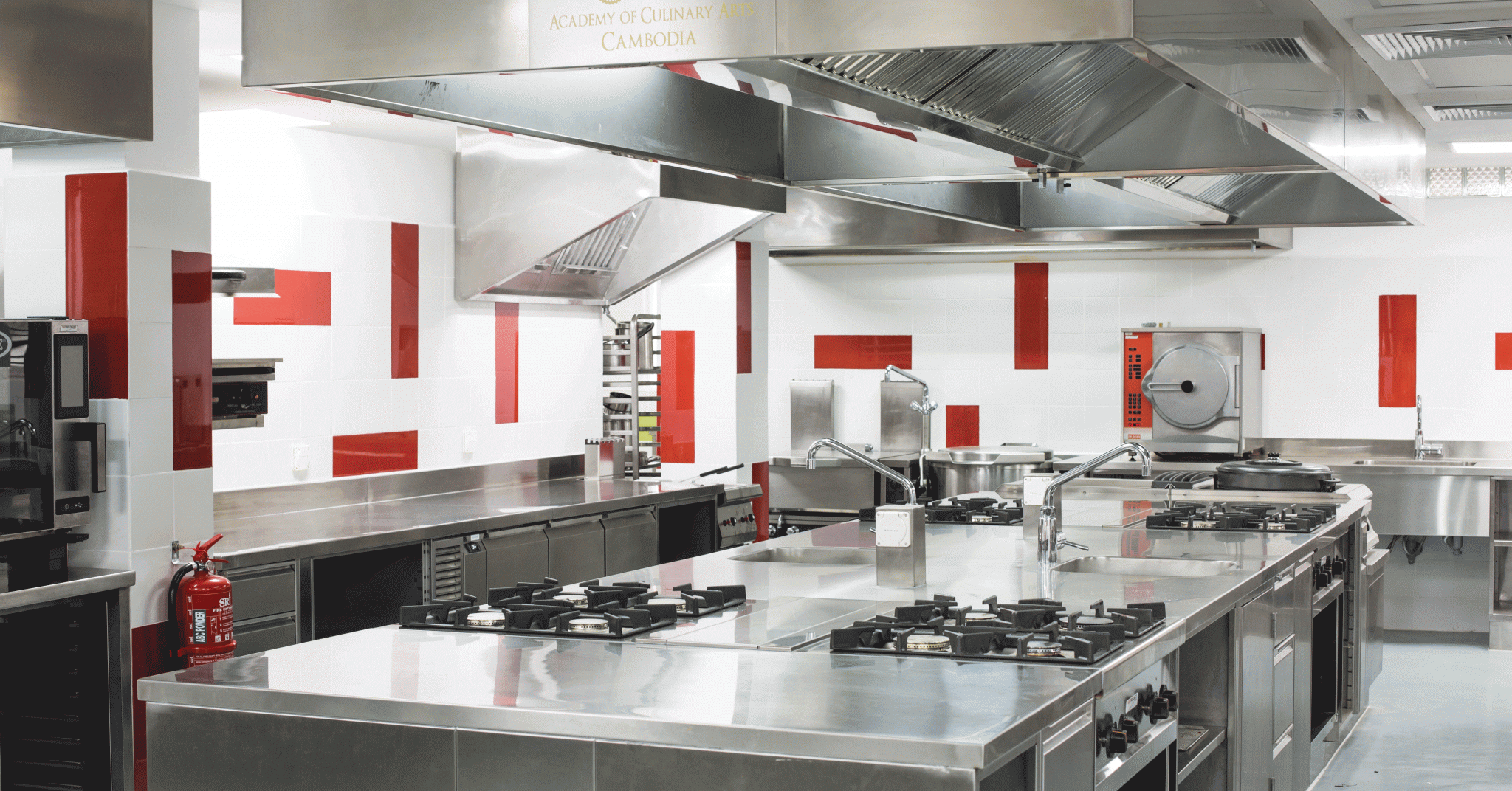Social entrepreneur Pierre Tami is feeling pretty chuffed about his “new baby”. His voice takes on the animated, proud tone of a first-time father when we speak just weeks after the December opening of Phnom Penh’s Academy of Culinary Arts Cambodia (ACAC), a hospitality training centre that offers its students internationally recognised higher diplomas, certificates and associate degrees in culinary arts.
“It’s been a long and difficult pregnancy,” he jokes, explaining that the seed of the idea for ACAC was first planted 20 years ago. “I’m always excited about these opportunities. The major priority in this country is human resources. There’s a huge growth in the economy and a demand for services, so the demand is growing for highly skilled, educated workers. And it’s not just F&B, but in every sector. The most important projects we should be investing in right now are educational ones, because if you don’t have skilled-up staff it becomes an issue for the country’s competitiveness and its economic growth.
“There are quite a few NGOs doing some training, but to be honest they’re very limited in terms of length and quality. As the tourism pillar of the economy grows, we saw the need for a professional hospitality school,” he said.
Open to anyone who has completed high school, the academy provides instruction in both Khmer and English and hopes to shape students into skilled and professional hospitality workers through exposing them to a wide range of international courses – both theory and practical – as well as on-the-job training via regular internships in some of Phnom Penh’s most highly regarded hotel and restaurant kitchens. By the end of the school’s most thorough course, the two-year diploma in culinary arts accredited by the Swiss Hotel Management Academy Lucerne, students will have covered the gamut of what goes into cooking top-notch international cuisine in a successful, professional kitchen.

As the country’s first Public-Private Partnership (PPP), nine key stakeholders from different government ministries and the private sector have helped fund and develop the school, which was another reason the “pregnancy” took so long.
The first intake of students will be whipping up béarnaise sauces, crème brûlées and creamy Italian risottos when classes start in March. A full degree costs $3,000 for locals and just over $6,500 for foreign students. ACAC also offers shorter certificate courses, which means that people already working in the industry can study after hours and continue working in their full-time jobs. While a modest 40 positions are open, there are grand plans to scale up enrolments to 200 each year.
Tami, an IBC board member, has a long history in Cambodia, founding highly regarded organisations such as Hagar Cambodia in the fraught and often violent 1990s. Hagar offers rehabilitation programmes and commercial training and employment for victims of abuse and trafficking. Shift360, another of Tami’s enterprises, is a regional facilitator of market-based solutions to help fight poverty, foster fair and sustainable employment and improve access to services that are critical to economic growth.
But Tami has always been a foodie at heart. He was most passionate, he says, about Hagar’s catering arm, and bought into a string of F&B businesses around Phnom Penh such as Italian eatery Terrazza.
He describes the state-of-the-art facilities imported by ACAC, reeling off top-notch features breathlessly: “Six containers full of the latest appliances and equipment! Combi ovens, combi steamers, dedicated pastry kitchens, cold kitchens, a barista bar… all from Switzerland and everything a young chef would dream of in a modern kitchen. But the most important feature is our software – the certification.”
There’s also a theatre with 80 seats for classes and to help drive business in Cambodia – Tami plans for it to be used by commercial suppliers keen to promote their products in the Kingdom, whether fish, meat, flour or cream. “We can also have celebrity chefs that may want to demonstrate Cambodian cuisine, so we see the academy as really flying the flag for the quality of this country’s food. We could even hold workshops for the public, or other businesses, to promote good eating habits, nutrition, hygiene and healthy food. There’s so much fast food coming into this country, we need to be promoting nutrition and good habits. Now that excites me,” he says.
Part of the education at ACAC is character building, building attitudes. You can teach a kid to cut an onion in one week, but all of the ingredients that go into a successful kitchen – teamwork, plating up, presentation, patience, friendliness – that’s what Marcus is passionate about.”
Tami praises the work of Markus Kalberer, the school’s dean. “Part of the education at ACAC is character building, building attitudes. You can teach a kid to cut an onion in one week, but all of the ingredients that go into a successful kitchen – teamwork, plating up, presentation, patience, friendliness – that’s what Marcus is passionate about. He’s worked in Swiss academies and in Jordan, setting up culinary and hotel management schools from scratch there. Simply being a good chef doesn’t make you a good teacher, but running a large institution is a huge skill to have – it’s very, very difficult. We’re very lucky to have him.” So how did Tami convince Kalberer to move to Phnom Penh? “You know, he was excited to start something from scratch; to be a pioneer.”
And that opportunity to grow something from the beginning is exactly what has kept entrepreneur Tami in the Kingdom for so many years. “It’s one of the most exciting things about doing business in Cambodia, that’s why I still get a kick out of it. Cambodia draws some very creative people because of this. You need to be tenacious, but the fact you can create something out of nothing is very rewarding.”


